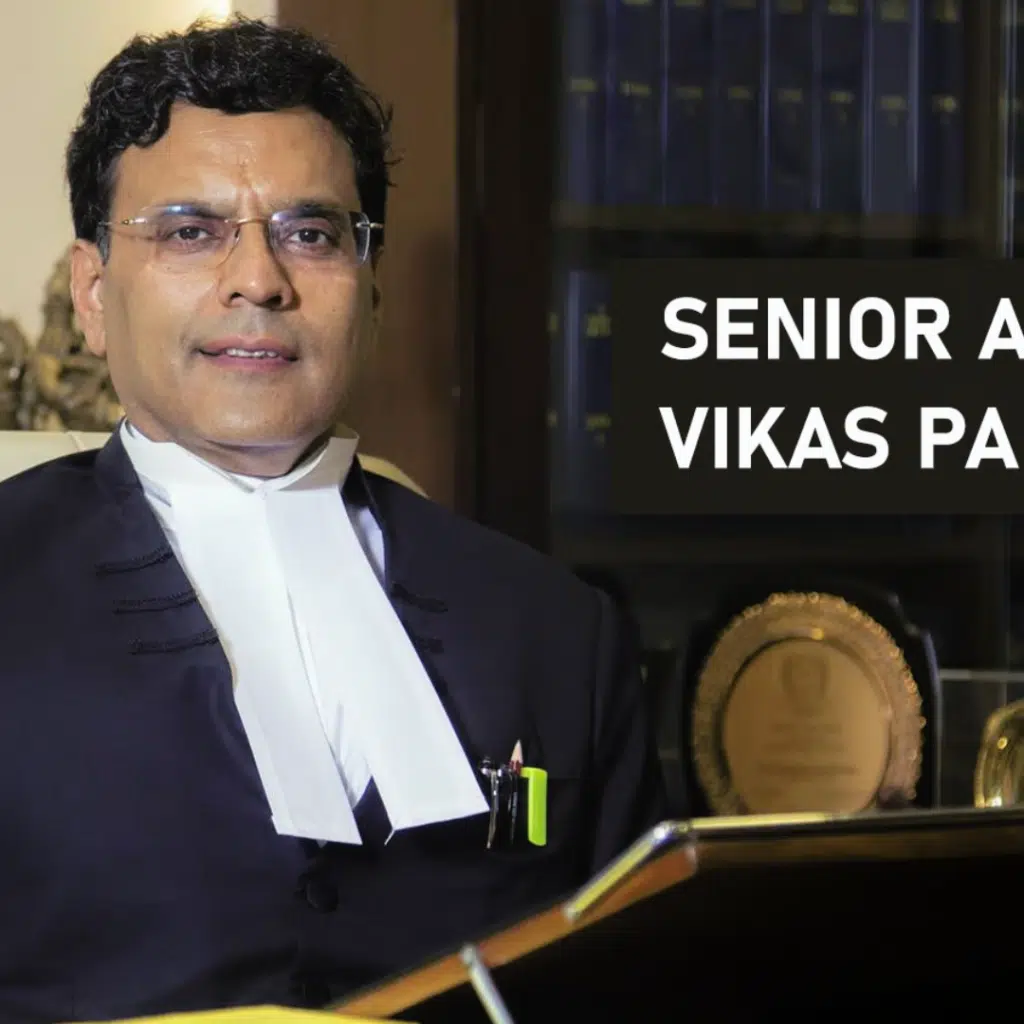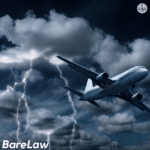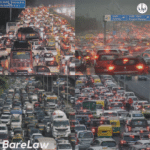
Delhi High Court Dismisses Defamation Case Against Senior Advocate Vikas Pahwa
Table of Contents
The Delhi High Court on Wednesday upheld the rejection of a defamation action against Senior Advocate Vikas Pahwa, marking a significant legal breakthrough. Pankaj Oswal filed the lawsuit, arguing that statements made by Pahwa during the legal process were defamatory and would have a negative impact on Oswal’s reputation.
The appeal against a single-judge decision that favored Pahwa was denied by the division bench of Justices Rajiv Shakdher and Amit Bansal, highlighting the idea of absolute privilege in judicial settings. The court rejected the request at the threshold because its ruling was based on the idea that remarks made during court proceedings are protected by this theory.
Oswal said that Pahwa’s remarks accused Oswal of mistreating his own mother and using non-parliamentary language throughout the mediation process. Oswal said that Pahwa had no firsthand knowledge of the mediation talks and that these comments had nothing to do with the sessions court’s proceedings. The court determined that Pahwa’s remarks would still be protected by the absolute privilege principle, which is intended to guarantee attorneys may carry out their jobs without worrying about being accused of defamation, even if it were assumed that Pahwa’s assertions were accurate.
The court reasoned that permitting defamation lawsuits based on remarks made in court would make it more difficult to administer justice because attorneys would constantly be concerned about facing consequences from the law for their advocacy. The court stated that this protection is essential for the unrestricted conduct of legal procedures, which eventually advances the public interest.
Pahwa was defended by a group of attorneys led by Senior attorneys AS Chandhiok, Arvind Nigam, and Sanjiv Kakra, whereas Oswal’s legal team comprised Advocates Kamal M. Gupta, Amber Shehbaz Ansari, Aslam Khan, and Gorakh Nath Yadav. The ruling of the High Court upholds the legal structure that bestows complete confidentiality on remarks made during legal processes, reaffirming the significance of this principle in preserving the credibility and efficiency of the legal system.
conclusion
the Delhi High Court’s decision to reject Vikas Pahwa’s defamation lawsuit is evidence of the court’s dedication to upholding the integrity of legal proceedings and the crucial role that attorneys play in them. The court’s affirmation of the theory of absolute privilege highlights the importance of enabling legal professionals to carry out their duties without the constant danger of defamation lawsuits, thereby ensuring the effective administration of justice.
FAQ
- In legal terms, what is absolute privilege?
- Absolute privilege is the immunity that people are afforded, especially in parliamentary or judicial settings, enabling them to speak freely without fear of being sued for defamation. In these situations, this privilege is essential for promoting candid and open discussion.
- Why was Vikas Pahwa’s slander lawsuit dropped?
- The court dismissed the lawsuit after concluding that Pahwa’s utterances were shielded by the theory of absolute privilege because they were made during legal proceedings.
- What was the statement that made the defamation lawsuit its focal point?
- According to Vikas Pahwa, the statement contained claims that Pankaj Oswal mistreated his mother and spoke in an unparliamentary manner throughout the mediation process.
- What implications does the court’s ruling have for the ongoing legal proceedings?
- The ruling upholds the defense provided by the theory of absolute privilege to attorneys, allowing them to carry out their obligations without worrying about being sued for defamation. The free and efficient administration of justice depends on this.
Barelaw, an online platform dedicated to delivering comprehensive legal knowledge, proudly presents its exclusive category of case briefs. This section is meticulously crafted to offer insightful analyses of landmark judgments, providing a valuable resource for legal professionals, students, and anyone interested in understanding the intricacies of law. Our case briefs delve deep into pivotal court decisions, exploring the rationale behind each judgment and its impact on the legal landscape.
We understand that navigating the complexities of legal judgments can be challenging. That’s why our case briefs are designed to be both informative and accessible, ensuring that readers gain a clear understanding of the key legal principles involved. Each brief includes a summary of the facts, the legal issue at hand, the court’s reasoning, and the ultimate decision. This structured approach makes it easier for our audience to grasp the nuances of each case.
Our website is a treasure trove of legal wisdom, constantly updated with the latest and most significant cases. Whether you’re a law student seeking to enhance your knowledge, a practicing attorney looking for a quick reference, or simply a curious mind eager to understand the law’s evolution, Barelaw is your go-to destination.
Explore our case briefs and immerse yourself in the world of law. Visit our website now and discover the wealth of legal knowledge at your fingertips. The link is provided below for your convenience and direct access to our expansive legal database
You can access more legal drafts here – https://www.barelaw.in/legal-drafts/



